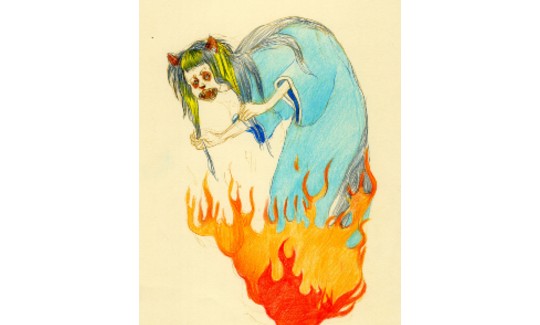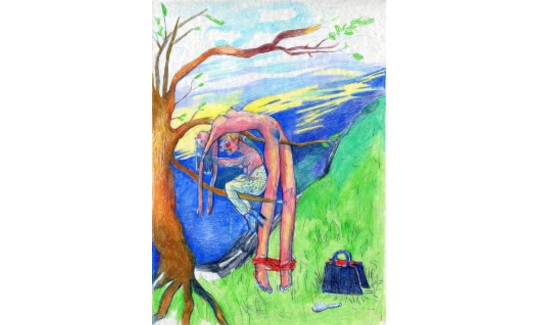Izabella Volovnik: Bitchcraft
Solo Exhibition
Saturday, 21.12.19, 20:00
Saturday, 01.08.20
:
Svetlana Reingold
More info:
04-6030800Izabella Volovnik's exhibition addresses the concepts of taming and restraining, and the term "bitch" in a cultural context. The artist attempts to challenge the well-mannered atmosphere with images of sweet girls transformed into menacing predators. She asks: do women who reach key positions tend to preserve the cruelty of the tradition of oppression? How does a world dominated by women looks like? What is the place of nature in such a world?
Volovnik deconstruct the meaning of the word "bitch," literally a "female dog." This is one of the oldest insults that can be hurled at a woman in the English language. A dictionary of slang from the eighteenth century called it "the most offensive name by which a woman can be referred to in England, even more so than the word 'whore.'" The use of this derogatory is also related to the description of Diana, the goddess of the hunt in Roman mythology. Diana is described running with dogs, or depicted herself animal-like. In an attempt to impose Christian ideology, the expression "son of a bitch" was used by the church in its struggle against pagan beliefs during the Christianization of Western Europe. The use of this word reflects an attempt to weaken strong and sacred women and to identify them with animals in heat.
Using images of female dogs, alongside other beasts, Volovnik addresses the process of taming, to which women are subjected from childhood. This process is intended to bind them to an oppressive and suffocating domesticity. The world of the woman is thereby reduced and lowered to the point of annihilation, while the educational establishment fixates her inferiority. The artist seeks to undermine patriarchal ideas that educate women, from a young age, to self-restraint and "proper" behavior. This education makes the woman voiceless as she learns to silence and suffocate her rage.
Notable in this context is the practice of punishing "disobedient" women, which was widespread in Europe from the sixteenth century. Among other things, such "shrews" were forced to wear the "scold's bridle" – an iron frame fastened on the head like a dog's muzzle. This type of punishment was usually public, as a means of humiliating the subject and deterring others. The "scold" was identified with unclean powers that must be restrained, being wild, beastly, mysterious, tempting, and threatening to the public order. This type of punishment was one of the means of taming the female body in order to constitute a "proper femininity."
Volovnik's exhibition raises questions regarding the relationship between femininity and aggression. As argued by the materialist feminist approach, women must refuse the masculine economic-political power. Just as there are no slaves without masters, when the concept of "man" vanishes, the inferior concept that accompanies it – "woman" – will also cease to exist. In the Israeli context, Volovnik juxtaposes the term "bitch" with the expression "no one's sucker," and tries to imagine – what would a world in which women are not "suckers" look like?
Izabella Volovnik was born in Jerusalem in 1995. She lives and works in Tel Aviv


